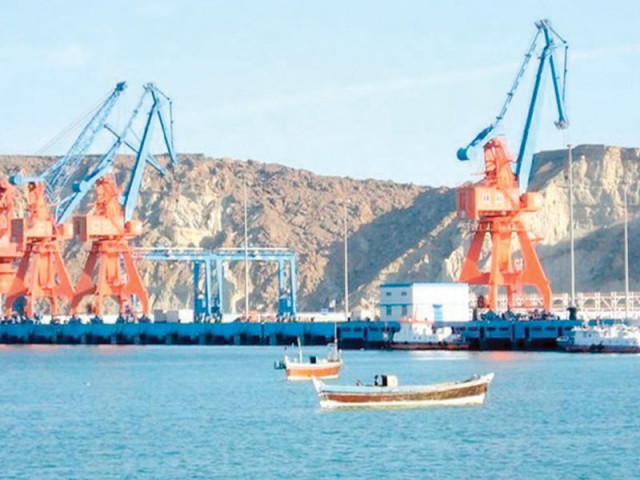Pak-China ties: Gawadar port one part of a larger plan
The Sino-Pak economic corridor will strengthen economic links across the region.

Gwadar port stretches across a larger economic corridor from Balochistan, to China, linking it to the Arabian Sea. PHOTO: FILE
The Gwadar port forms one part of a larger economic corridor project stretching from Gwadar, Balochistan, to Kashgar, in the Xinjiang Uygur autonomous region, linking China to the Arabian Sea.
Administrative authority for the port previously rested with a Singaporean company. It was transferred to a Chinese company in February.

“This port will be facilitating China’s exports as well as Pakistan’s own economic development and activities,” Jadmani said. The port needs to be effectively utilised, and the operation is expected to pick up speed, he added.
“Clearly, the Pakistan-China relationship needs to be further enhanced for mutual benefit, and this is a project that would help us out,” he said.
A “peaceful neighbourhood” including India and Afghanistan is what Pakistan prioritises in its diplomatic guidelines, Jadmani said.
He described bilateral cooperation in infrastructure projects as “salient”, saying many Chinese engineers have given their lives for the Karakoram Highway that connects the two countries. Bilateral trade reached more than $12 billion last year, and Islamabad is “working in the direction” of raising this figure to $15 billion by 2015.
China is a very “strong emerging market”, he said.
During his visit to Pakistan in May, Premier Li Keqiang proposed helping Pakistan to cultivate 1,000 Chinese language teachers with the aim of facilitating people-to-people exchanges.
Jadmani said various projects contracted or operated by the Chinese in Pakistan had contributed to a growing enthusiasm for learning Mandarin. “If you know the language, it is very helpful to further cement the bond of friendship.
Published in The Express Tribune, August 13th, 2013.
Like Business on Facebook, follow @TribuneBiz on Twitter to stay informed and join in the conversation.



















COMMENTS
Comments are moderated and generally will be posted if they are on-topic and not abusive.
For more information, please see our Comments FAQ